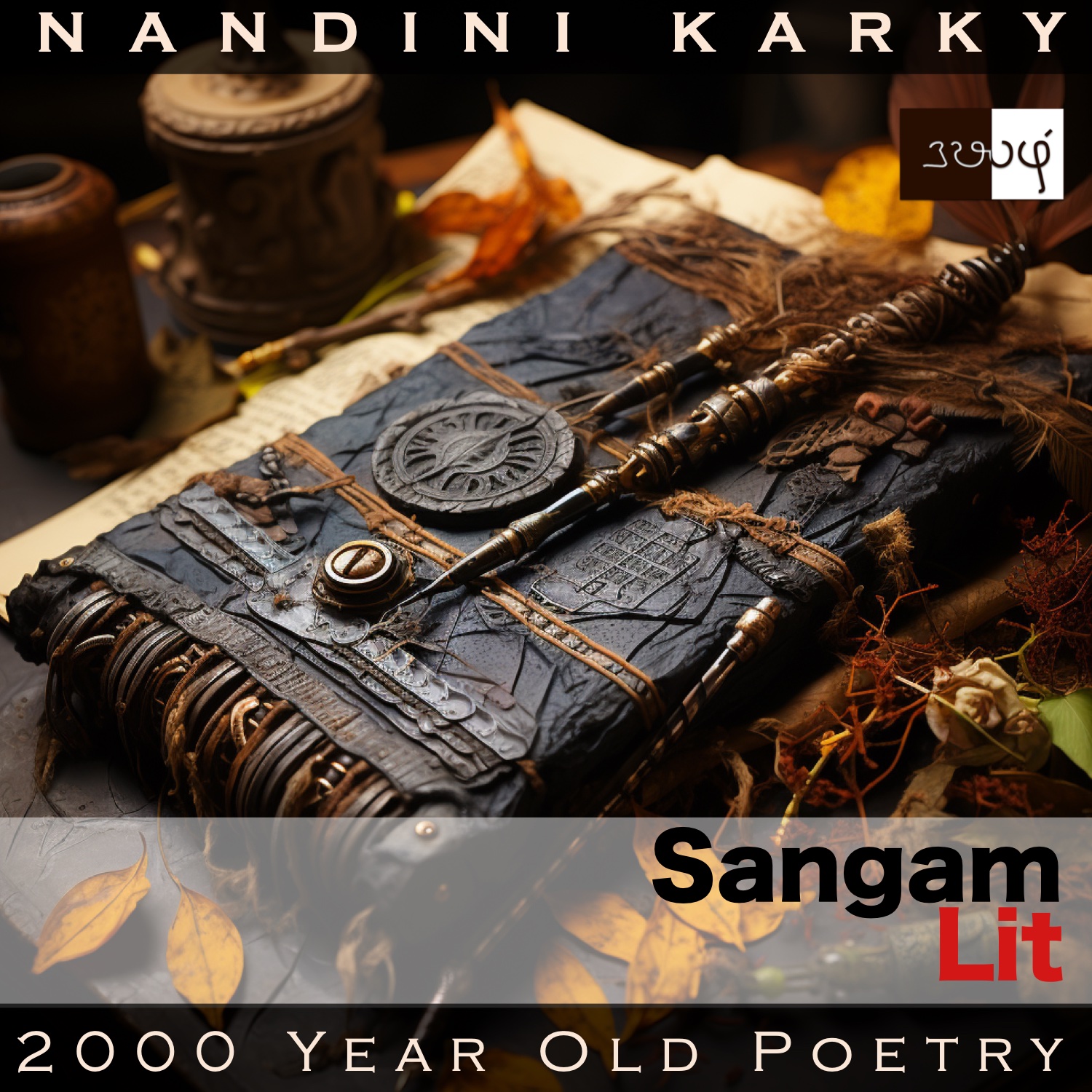Podcast: Play in new window | Download
Subscribe: Apple Podcasts | Spotify | Amazon Music | Android | iHeartRadio | TuneIn | RSS | More
In this episode, we perceive the importance accorded to education in the ancient era, as depicted in Sangam Literary work, Puranaanooru 183, penned by the Pandya King Aariyappadai Kadantha Nedunchezhiyan. Set in the category of ‘Pothuviyal Thinai’ or ‘Common themes’, the verse talks about the special privileges of the learned.

உற்றுழி உதவியும், உறு பொருள் கொடுத்தும்,
பிற்றை நிலை முனியாது, கற்றல் நன்றே;
பிறப்பு ஓரன்ன உடன்வயிற்றுள்ளும்,
சிறப்பின் பாலால், தாயும் மனம் திரியும்;
ஒரு குடிப் பிறந்த பல்லோருள்ளும்,
‘மூத்தோன் வருக’ என்னாது, அவருள்
அறிவுடையோன் ஆறு அரசும் செல்லும்;
வேற்றுமை தெரிந்த நாற்பாலுள்ளும்,
கீழ்ப்பால் ஒருவன் கற்பின்,
மேற்பால் ஒருவனும் அவன்கண் படுமே.
One more song by a king on an overarching theme of importance to one and all. The king who turns poet here is the Pandya King by the name ‘Nedunchezhiyan’, a name popular from the Sangam era till contemporary times in Tamil society. The speciality of this King Nedunchezhiyan seems to be that he battled with and won over the armies from the north of India. The king delves on the core theme of learning and his words can be translated as follows:
“Allaying a teacher’s troubles, offering the right compensation, and then learning from them without any dislike for the state of submission is righteous; Although birthed from the same womb, even a mother would prefer the one who has turned eminent because of learning; Among the many born in the same family, instead of saluting and welcoming the elder, a king would gravitate towards the path of the most knowledgeable one; Amidst the four groups with differences, if one in a low group happens to become learned, then even one in a higher group would come seeking that other’s learning.”
Time to delve into the details. The king starts with the one who endows education and says that it’s important to make sure a teacher’s troubles are sorted out and they are made comfortable with material wealth. After ensuring these essentials, the right thing to do would be for one to submit themselves to the wisdom of this teacher, without any dislike whatsoever for the inevitable state of humility from which learning is to be attained. Let’s delve into these thoughts that seem much ahead of its time shortly. From the source of education, the king then talks about how even a mother who birthed her children from the same womb would have the learned one as her favourite. Although this might be a way of persuading all children in a family to learn well, personally I see it as the king’s opinion and do not accept the absolute truth of this statement that a mother has preferences among her children. Transporting us from that domestic scenario to the public domain of a king’s court, this poet-king adds that even there, it’s not the eldest of a family who will command respect automatically but the one who is the most knowledgeable. Finally, the king comes to a controversial topic of four divisions in society and says even if one in a lower division attains learning, those in the higher division will not mind their superior status and go seek the wisdom of the other!
Let’s examine these concepts in reverse order. Although the equalising power of education is presented in the final point, there arises a confusion about the mention of four unequal divisions in society. While it may seem to pertain to the four caste divisions mentioned in certain Hindu texts, the Sangam collection has never dwelled on that kind of division in ancient Tamil society. So, this could possibly be the influence of Sanskrit ideologies creeping into the egalitarian view of society that is echoed even in post Sangam literature like ‘Thirukkural’, which states unequivocally that ‘all lives are equal’. Leaving this thorny reference aside, let’s turn our focus to the central theme of this verse, which is a celebration of education. When we see that it’s a king, from a time when most societies in the world were preoccupied with just survival, presenting such thoughts on education, we can infer his society was a highly literate one with an evolved moral code that wanted to ensure education for all.
Coming to the first and most important point, we see it mentioned in this early historic verse that to have a well-educated society, the focus must be on the teacher’s well-being. Their situation should be worry-free and wealthy. Only then, can they share their wisdom and learning to the next generation, says this verse. No one has understood this thought better than the country of Finland, whose teachers are well-trained, well-paid and well-respected, and whose education system is renowned all over the world. ‘Value your teachers and your country will take care of itself’, seems to be the subtle thought at the heart of this verse. And yet again, I come away awed by how words written by a person more than two thousand years ago reverberates with a relatable truth across the millennia!




Share your thoughts...